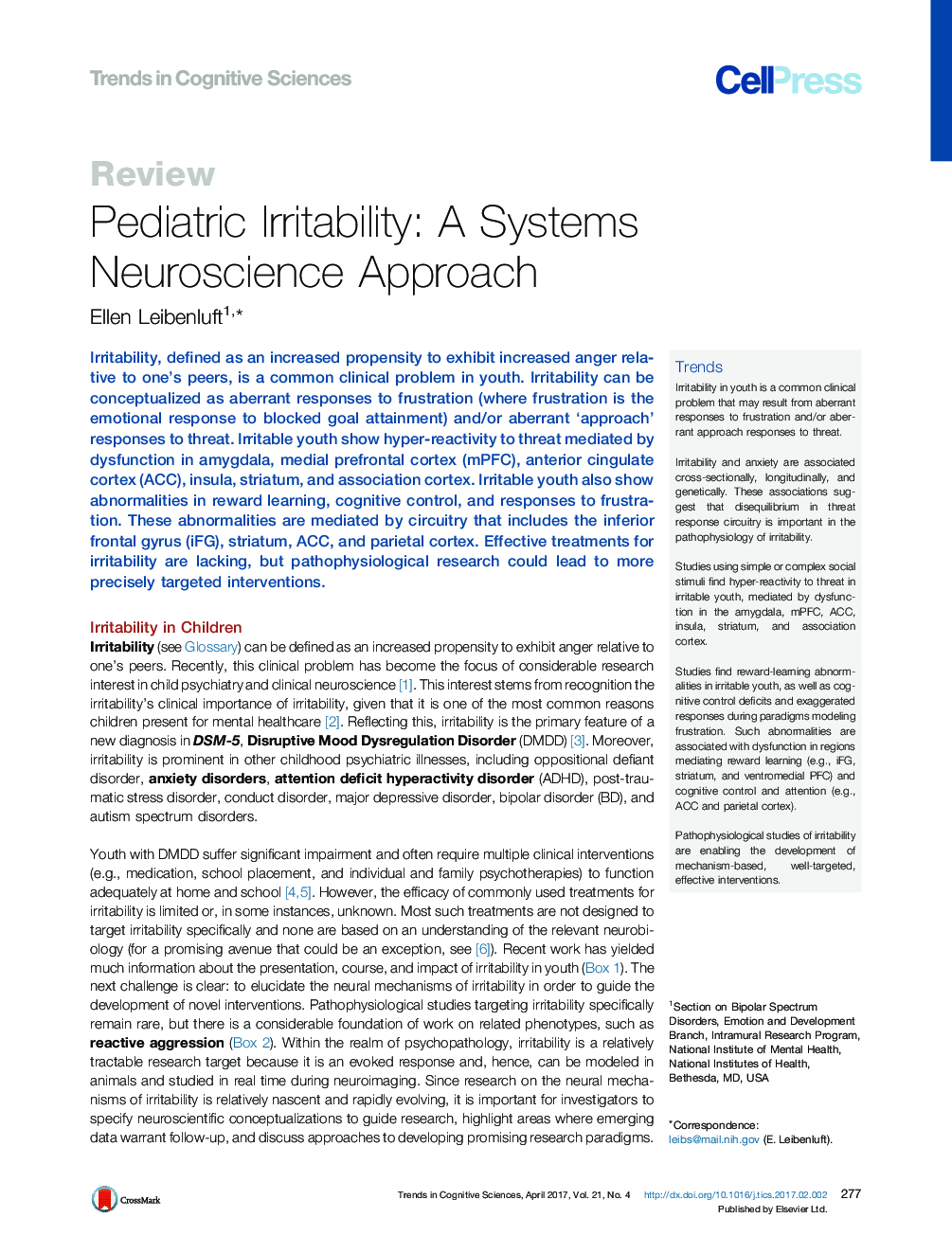| Article ID | Journal | Published Year | Pages | File Type |
|---|---|---|---|---|
| 4762144 | Trends in Cognitive Sciences | 2017 | 13 Pages |
Abstract
Irritability, defined as an increased propensity to exhibit increased anger relative to one's peers, is a common clinical problem in youth. Irritability can be conceptualized as aberrant responses to frustration (where frustration is the emotional response to blocked goal attainment) and/or aberrant 'approach' responses to threat. Irritable youth show hyper-reactivity to threat mediated by dysfunction in amygdala, medial prefrontal cortex (mPFC), anterior cingulate cortex (ACC), insula, striatum, and association cortex. Irritable youth also show abnormalities in reward learning, cognitive control, and responses to frustration. These abnormalities are mediated by circuitry that includes the inferior frontal gyrus (iFG), striatum, ACC, and parietal cortex. Effective treatments for irritability are lacking, but pathophysiological research could lead to more precisely targeted interventions.
Related Topics
Life Sciences
Neuroscience
Cognitive Neuroscience
Authors
Ellen Leibenluft,
